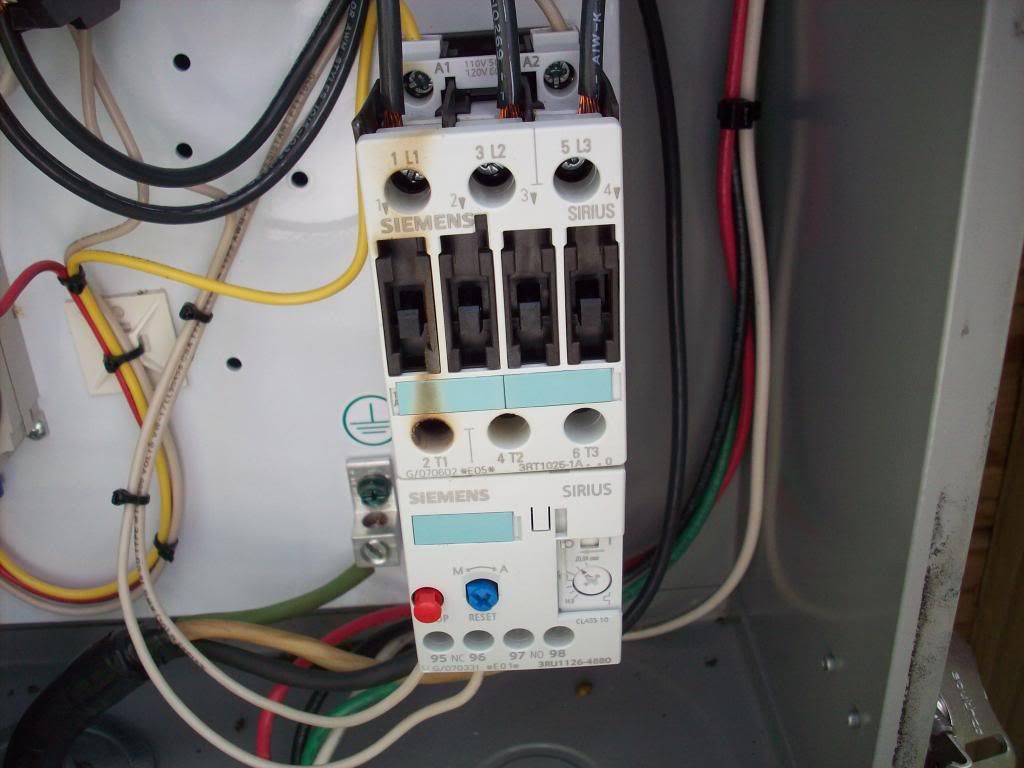Da Electrician
Member
- Location
- Alaska
We have a 3ph 460V 60hz 3hp motor.
We are having an issue with a motor tripping the Thermal overload. We have meggered the motor, tested resistance on all the windings, checked the motor bearings and the bearings of the load. Everything checks out good, the contactor in the starter had some resistance through the contacts on one of the phases. We cleaned the contacts in the contactor. The overload is a Seimes solid state thermal overload, it is rated and set correctly for the motor. This set up has been running for a couple years now with no changes other than mantainance. For some reason it just started tripping the overloads.
Any help would be appreciated !
We are having an issue with a motor tripping the Thermal overload. We have meggered the motor, tested resistance on all the windings, checked the motor bearings and the bearings of the load. Everything checks out good, the contactor in the starter had some resistance through the contacts on one of the phases. We cleaned the contacts in the contactor. The overload is a Seimes solid state thermal overload, it is rated and set correctly for the motor. This set up has been running for a couple years now with no changes other than mantainance. For some reason it just started tripping the overloads.
Any help would be appreciated !


